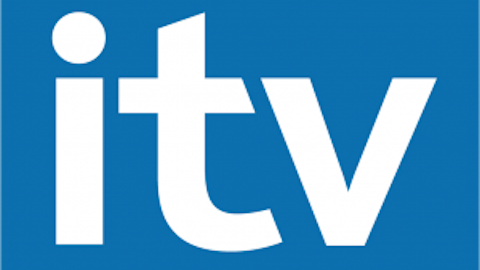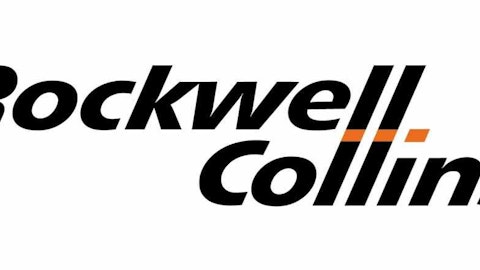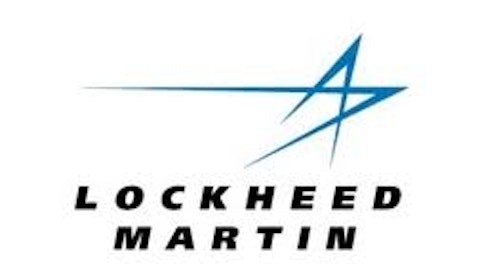The next selection for the Inflation-Protected Income Growth Portfolio is defense contracting giant Raytheon Company (NYSE:RTN). Although it’s up against a potential loss of revenue due to the anticipated defense spending sequestrations, the reality is that the cuts, if they happen, will really just slow the rate of spending growth.
Nevertheless, the threat of defense spending cuts reduced the company’s forecast, thus knocking down its stock in recent weeks. That drop in stock price brought the shares down into a range where the iPIG portfolio is willing to buy.

Why it’s worth owning in the iPIG Portfolio
To earn a spot in the portfolio, a company has to pass a series of tests related to its dividends, its balance sheet and valuation, and how it fits from a portfolio diversification perspective.
Dividends:
1). Payment: The company’s dividend currently sits at $2 a share, a yield of about 3.7% based on Friday’s closing price.
2). Growth history: The company has raised its dividend annually since 2005, resuming a streak of increases that ended in the mid-1990s.
3). Reason to believe the growth can continue: With a payout ratio of 35%, Raytheon retains nearly two-thirds of its earnings to invest for future growth. That fairly low payout ratio also gives it the flexibility to maintain its payment during the potential sequestration and/or if that anticipated longer-term growth doesn’t materialize as quickly as hoped.
Balance sheet and valuation:
Balance sheet: A debt-to-equity ratio of around 0.6 indicates that the company does use debt, but it hasn’t overleveraged itself to the point where a near-term financial hiccup would derail it.
Valuation: By a discounted cash flow analysis that takes into account Raytheon’s recently lowered guidance, it looks to be worth around $18.8 billion. That makes its market cap of $17.6 billion seem reasonable.
Diversification fit:
The previous picks for the portfolio included:
- An industrial conglomerate
- A generic-pharmaceutical powerhouse
- A provider of staple foods
- An auto parts distributor
- A safety equipment provider
- A high-tech (software) titan
- A toy maker
- An electric utility
- A shipping company
- A pipeline giant (though this one might actually get away)
- A drugstore
- A semiconductor superstar
- A two-for-one railroad special
- A fast-food juggernaut
- A medical device maker
- A supplemental insurance writer
- An air chemicals business
Fellow iPIG portfolio selection United Technologies Corporation (NYSE:UTX) also has a significant military contracting business, which makes Raytheon a less-than-ideal pick from a diversification perspective. Still, it’s more of a pure-play defense business than the more conglomerated United Technologies, and Raytheon’s recent stock weakness makes it attractive enough from a valuation perspective to consider buying. It may not be perfect diversification, but it’s all part of the balancing act needed to manage across risks in investing.
Why pick it over its peers?
Still, as Raytheon is only one of several defense contractors out there, it raises the question: Why select this company instead of one of the others? The table below shows some key measure comparisons that led to its selection:
| Company | Yield | Payout Ratio | 5-Year Estimated Growth Rate | Debt-to-Equity Ratio | Price-to-Earnings Ratio |
|---|---|---|---|---|---|
| Raytheon | 3.7% | 35% | 5.7% | 0.6 | 9.7 |
| Lockheed Martin (NYSE:LMT) | 5.2% | 50% | 7.9% | 161.7 | 10.5 |
| Rockwell Collins (NYSE:COL) | 2% | 34% | 9.7% | 1.1 | 13.9 |
| Northrop Grumman (NYSE:NOC) | 3.4% | 28% | (1.7%) | 0.4 | 8.4 |
Data from Yahoo! Finance, as of Feb. 18, 2013.
Looking at the competition, only Lockheed Martin has a higher current yield, but its debt-to-equity ratio is also substantially higher, making it tougher to consider. On the flip side, Rockwell Collins has a more reasonable debt load, but its lower yield, higher price-to-earnings ratio, and faster expected growth rate suggests that the risks from sequestration haven’t been fully baked into its stock yet.
Purely from a valuation perspective, Northrop Grumman looks like the most reasonable alternative to Raytheon, but analysts now expect the former to shrink over the next five years. Given that the iPIG portfolio looks to buy companies with rising dividends, and since a sustainable, rising dividend requires rising earnings, that makes Northrup Grumman one to watch rather than to own.
Put it all together, it means that among its peers Raytheon looks like the best overall fit for this portfolio.
What are the risks?
Of course, no investment is without risk. In Raytheon’s case, one of the biggest risks is the fact that its defense industry is tied to the ever-political appropriations process. As the potential sequester shows, funding from that large and incredibly important customer that is the U.S. Department of Defense is never guaranteed.
The article Why Raytheon’s Stock Is Worth Owning originally appeared on Fool.com and is written by Chuck Saletta.
Chuck Saletta owns shares of United Technologies. The Motley Fool owns shares of Lockheed Martin, Northrop Grumman, and Raytheon Company.
Copyright © 1995 – 2013 The Motley Fool, LLC. All rights reserved. The Motley Fool has a disclosure policy.





